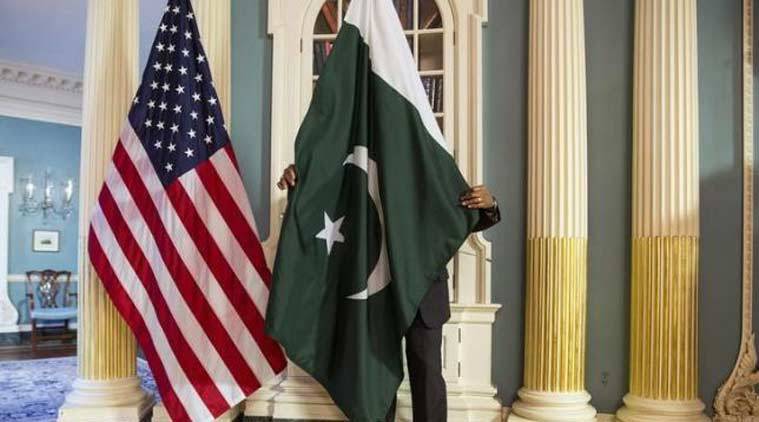The US appears to be caught in a paradox of its own in the Afghanistan Pakistan Region (APR). Its Afghan campaign is tottering and has been literally fought to a standstill by the Tehrik-e-Taliban Afghanistan (TTA). Its military has lost its strategic direction and orientation. It seems clueless of the ways and means to arrive at the desired end state, which appears lost in the maze of extremely tentative policy formulation and chronic indecision at government and military levels. The US military is itself calling it a “stalemate” – euphemism for a stunning lack of success or even defeat.
The US’ paradox is compounded by the indecision over further entrusting the Afghan campaign to the formidable US military or outsourcing it to Eric Prince’s contractors/mercenaries. A new low for the US military!
It is in this Afghan muddle that the US now seeks a face saving outcome. It seems obsessed with making “paradoxical” Pakistan the fall guy for all its own inadequacies in policy formulation and maintaining strategic direction. It has also not demonstrated the determination, the operational and tactical acumen essential to comprehensively defeat the terrorists. On the one hand it appreciates Pakistan’s sacrifices and outstanding successes against the terrorists while on the other it unfairly punishes it for doing so “selectively”. Are the US and Afghan forces in Afghanistan not equally culpable?
However, this lack of decisive leadership at the US government and military levels is allowing regional players like Russia, China and Iran time and space to make ingresses and alter the dynamics of the operational environment in the APR – much to the detriment of US interests. Russia and Iran are engaging, arming and encouraging the TTA to fight the IS thus reducing the quantum of threats to themselves, twofold. Iran also gets to at least secure its eastern flank as it comes under new pressures from the US Government. China is extremely apprehensive of Indian (RAW-NDS nexus) threats to its investments in the region and especially to OBOR/CPEC. It may feel constrained to react with force at some point in the foreseeable future. Pakistan continues to be wary of Indian presence in Afghanistan and its nefarious Chanakyan designs against it.
The US, however, is fixated upon the TTA’s supposed “safe havens” in Pakistan. Fixations make for biased and faulty appraisals of the situation and lead to poor decision making, even poorer operational strategies and massive defeats on the battlefield. The US military’s decision making processes in the APR, in this case, suffer from this malady. Assuming that these supposed “safe havens” are wiped out by Pakistan, will it guarantee success to the US in Afghanistan? Is this the real centre of gravity of the hydra-headed terrorism menace in the APR? Will destroying these so-called “safe havens” have a domino effect and in itself cause the collapse of the entire terrorism portfolio in the APR including Al-Qaeda, IS, TTP, Jamaat ul Ahraar, IMU, ETIM etc as well?
A realistic and comprehensive review of the operational environment in the APR is in order. The US Government must demonstrate clarity of thought at the strategic level and unambiguously redefine the desired end state of Operation Resolute Support. In particular, Afghanistan and Pakistan (still a major Non-NATO ally, till last reports came in) must have no doubts in what would constitute a successful end to the Afghan Campaign for the US – if it is actually seeking one!
Thereafter it must clearly lay down the methodologies, the ways, through which it wants to go about achieving its campaign objectives. Will the US want to continue engaging the ANSF (at perhaps slightly heightened levels with additional 5000 soldiers/trainers?) and still expect it to win the Afghan Campaign for it? Or will it want to go in for a regional solution to the issue by co-opting Pakistan, Iran, CARs, Russia and China etc (SCO-?) and deliver a fatal blow to regional-global terrorism through combined operations? Including India will be self-defeating as it will create unnecessary friction and irritations with more than one participant. It will be a deal breaker. A well thought out decision or otherwise at this juncture could mean success or failure in the regional-global war on terror. The US should either come up with a clear decision, a viable modus operandi and a practical solution – at the regional or bilateral (with Pakistan) levels – or maintain its largely solo flight!
Thereafter the US must unambiguously enunciate the means it wants to use to achieve its redefined end-state; if it wants Pakistan to be a “means” to achieving its strategic objectives then will coercing Pakistan into the battle help defeat the TTA or will co-opting it be a better option? Or is it easily doable without Pakistan on board? The US needs to make a well-informed and well-thought out decision here. It could decide the fate of its Afghan Campaign. To make Pakistan a willing participant in the battle, the US must restore the bilateral relationship to its earlier status, stop all forms of coercion and resume the military and economic aid (including the outstanding CSF payments) programs. It must also create the right operational environment in the APR. That means, foremost, the neutralisation of the anti-Pakistan India factor in Afghanistan for good. Second, the NDS-RAW nexus that continues to launch terrorist groups and proxies into Balochistan and FATA must be broken forthwith. Furthermore, the TTP, Jamaat-ur-Ahraar, IS etc must be neutralised as a preliminary step to any further joint/combined operational or other considerations.
Pakistan Armed Forces’ Operation Zarb-e-Azb and the ongoing Operation Radd-ul-Fassad have been unqualified, pristine and classic successes. The US military must study them, draw relevant lessons and conduct joint training with the Pakistanis. It must decide too, whether it wants a regional solution (combined operations with SCO or part thereof), a bilateral solution (with Pakistan) or if it would like to maintain the status quo. The future of the regional-global war on terror and the APR might hinge on this one fateful decision.






